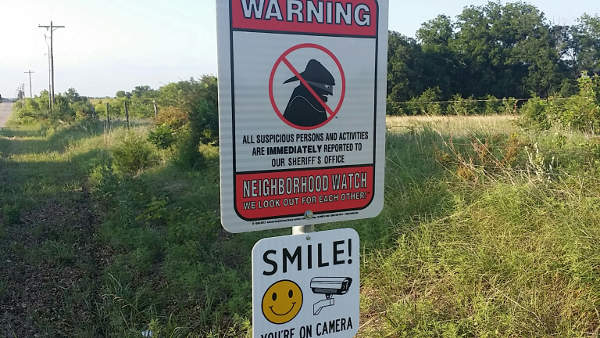 As both Graywolf and I have spoken of here many times, OPSEC is of course of tantamount importance. I’m a firm believer that if everyone knows you stockpile beans and bullets, then during a catastrophe you are no longer a neighbor or a friend. Instead you become a supply depot as people will start looking to you for food, water, etc. This could cause you some serious problems as the unprepared continue to show up at your door step asking and maybe even demanding what is yours.
As both Graywolf and I have spoken of here many times, OPSEC is of course of tantamount importance. I’m a firm believer that if everyone knows you stockpile beans and bullets, then during a catastrophe you are no longer a neighbor or a friend. Instead you become a supply depot as people will start looking to you for food, water, etc. This could cause you some serious problems as the unprepared continue to show up at your door step asking and maybe even demanding what is yours.
Getting to know your neighbors and having them get to know you can also keep things from getting as out of hand if things go bad in the area, as shown in this video:
Yet I also believe that the Rambo/Lone Wolf approach is probably not the wisest course of action either. I’m not going to rehash all of the benefits of having other members of a support group to turn to. Suffice it to say that you probably ought to try and find a “happy medium” between going it alone, and posting a “FREE COFFEE AND DONUTS” sign on your house during the apocalypse.
For reasons that boggle my mind, the mainstream media (and public in general) tend to stereotype preppers as crazy and/or paranoid. Shows such as Nat Geo’s Doomsday Preppers only add fuel to the stereotyping fire. (Another reason I tend to remain tightlipped about my being prepared.) So I do not actively go out looking for other preppers. I have a small group of people that I can reasonably depend upon.
But what if you don’t have that? Or what if you do have a prepper support group, but live in a busy neighborhood and wonder about your neighbors should SHTF? Well, why not “camouflage your intentions” by starting a neighborhood watch program?
Neighborhood watch programs are chic. People don’t see them as raving lunatics waiting for the end of the world. These programs are encouraged and even help set up by your local police department. Contact them for more information on setting one up in your neighborhood, and you will be surprised at how much most police departments are willing to help.
So what is my point in this? By helping to set up a neighborhood watch, you are, in a round about way, helping yourself not just try and keep crime out of your neighborhood, but also helping you gain knowledge in the event of a serous emergency.
I’ll explain.
Before I became happily divorced, I was in a neighborhood with a somewhat active neighborhood watch program. I was quickly welcomed in when they realized I was a police officer, albeit for a different town. And within a very short time, I already had a lot of information about my neighbors that could have proven very useful had there been a huge crisis.
My next door neighbor was a captain of the police detectives for the city I lived in. In talking with him, I learned that he had been in the Army for 4 years and then attended college. His wife was a science teacher at a middle school. Their kids were grown and lived in other cities.
So almost immediately I could draw the following conclusions about him and his wife:
- He had firearms training and experience.
- Being a detective, he had experienced some grisly and even dangerous calls, hence he could probably remain reasonably calm in the face of a crisis
- You don’t make the rank of captain by sheer luck. Chances are he had some leadership and organizational skills and training
- He knew the city VERY well. I grew up in this town and thought I knew it, but as a police officer you learn your area in much more detail than an average person
- The wife most likely had some organizational skills also, and her science background could be beneficial
- With family in other cities, they may not have had much of a support system should the grid go down.
As we continued to talk over the next week weeks and months, a few other items of note came up. One was that they shopped at the local grocery store almost every afternoon. They said they liked to eat a variety of foods, and were never really sure what they might be hungry for that evening. So generally they would shop for dinner most evenings. Or they would dine out.
And although he had a department issued pistol and shotgun, his only personal firearm was a .22 rifle that he “hadn’t shot in years.”
This told me that the chances of them having extra food and water set back were most likely slim. It also told me that he most likely he did not shoot much anymore outside of having the annual “firearms requalification training” for the police department. This in turn led me to believe that he probably did not have much in the way of ammunition at his house.
(For the record, I know what happens when you assume. But given what I had learned, I do not think it was unreasonable to believe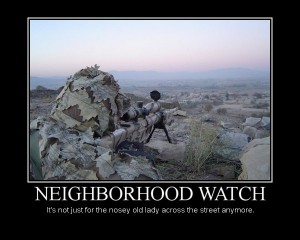 this was more likely than not to be true.)
this was more likely than not to be true.)
My neighbor across the street was a retired elderly woman, whose husband had passed away several years before. She had a daughter and son in law who lived in another town maybe 15 miles away. But they came by to check on her several times a week. They typically did the grocery shopping for her, and would usually buy a few weeks’ worth of groceries at a time.
Although she was somewhat fragile and required several medications, her mind was sharp and she had a good sense of humor. She was also a wealth of information on things like gardening, and home remedies.
She had been born at the end of the great depression, and had been raised on a farm. And while she lacked the strength to do things like churn butter or raise crops, she knew exactly how it was done. Her daughter and son in law had a small vegetable garden in her back yard, and she was proud of the fact that she was teaching them how to grow things.
If things had gone bad, I don’t know what sort of medication she would need, but aside from that, she would be able to sustain herself at least for a little while. And her knowledge on homesteading and herbal medicines
would have been invaluable.
On the flip side, I promise I wasn’t the only one in that neighborhood that knew that the daughter and son in law brought a few weeks’ worth of groceries to her house. Although she never openly talked about it, people knew.
I sometimes worried what might happen to her had the SHTF. I guess it was the sense of justice within me, but I gave her my phone number and told her to call me if she ever needed anything. I told her daughter the same thing. I really enjoyed talking to her, and was a bit melancholy when I moved away.
I use these examples to show that by meeting and learning about your neighbors, you will be able to better determine their strengths and weaknesses that could directly impact you in the face of a catastrophic event.
I also mention this to make you stop and think about how much people might know about you that you don’t realize. Little things like buying groceries in bulk may not mean anything right now. But to a neighbor who hasn’t eaten in 3 days, that is almost an open invite. Your swimming pool could suddenly take on “communal” ownership now that the running water has stopped. Your wife, the ER nurse, is now expected to make house calls to neighbors who are getting sick.
Your neighbors are hopefully great people, willing to loan you a lawnmower or help you move a large file cabinet to the basement. And it is a great thing to try and help build trust among them. But after three days with no food? After watching THEIR children go hungry day after day? They won’t be the same people anymore.
Who knows….maybe there is a neighbor or two who shares your views on being prepared? A support group in the making? You won’t know until you get to know your neighbors. With the common goal of keeping crime out of your neighborhood, you could very well be building that trust you might need in an emergency situation.
By knowing what those people closest to you (in proximity) do or don’t bring to the table in the event of an emergency, you will be better able to determine what you need to do to help ensure the survival of you and your family.
Editor’s note: You may want to read Should you build a SHTF team or go it alone? for some more information related to working together with others.
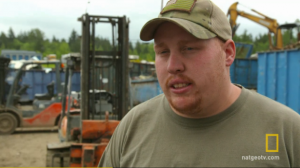



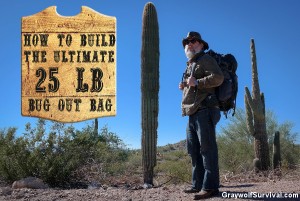
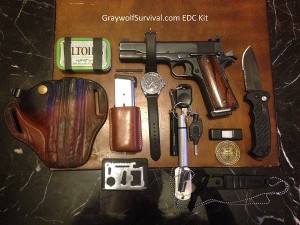
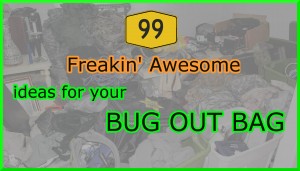
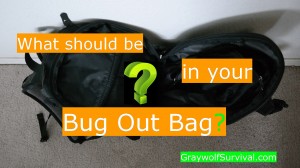

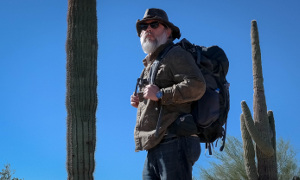
Speak Your Mind